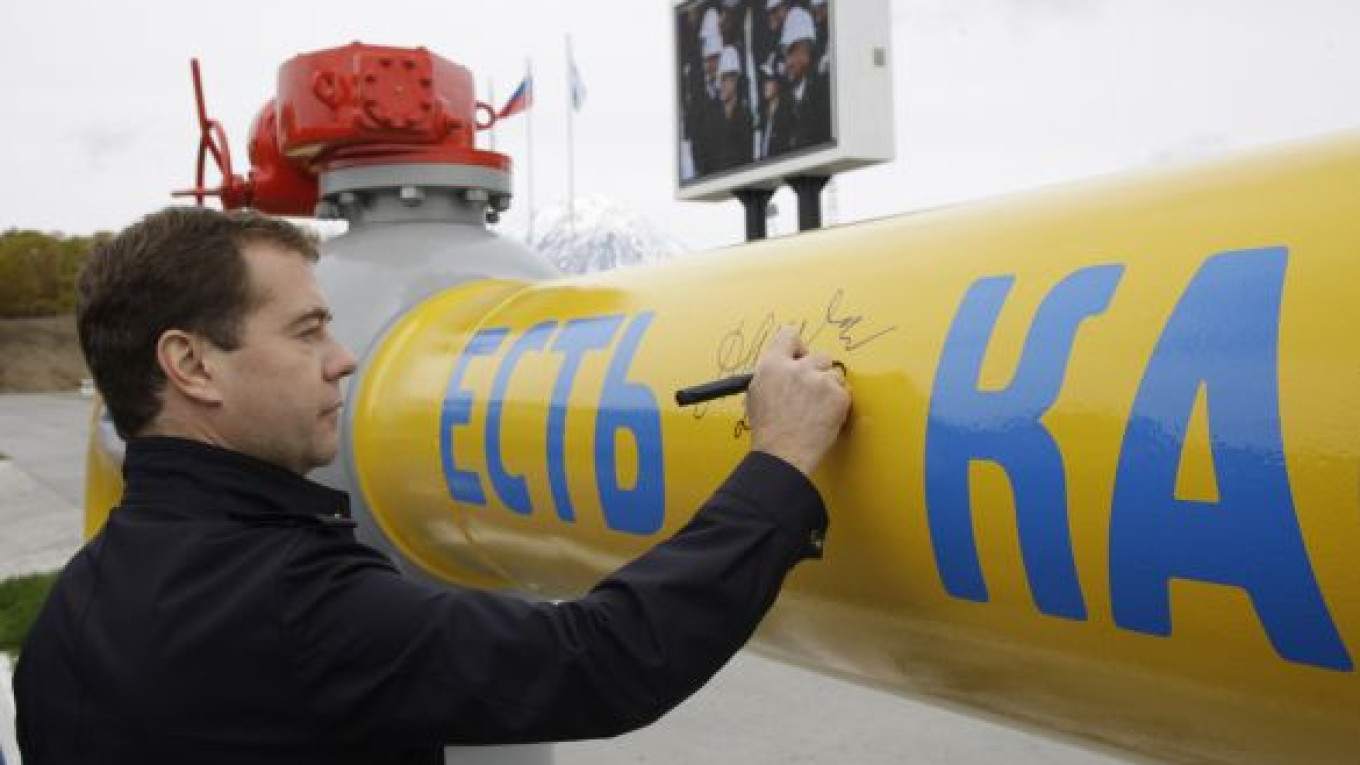President Dmitry Medvedev on Wednesday ordered Kamchatka Governor Alexei Kuzmitsky to speed up the resettlement of people from rundown buildings, repeating instructions that Prime Minister Vladimir Putin gave the governor a month before.
Medvedev and Gazprom chief Alexei Miller also opened a pipeline to bring local gas to the regional capital, Petropavlovsk-Kamchatsky.
The Housing Maintenance Fund has been able to negotiate with Kamchatka authorities the resettlement of only 103 people, the state corporation said. By comparison, the fund has allocated funds to help 12,000 people move to better apartments in Bashkortostan.
“Everything there looks appalling, horrible and is in a depressing state,” Medvedev said of the state of housing in Kamchatka, an earthquake-prone area.
He urged the governor and his team to work more on the issue. ?€?This is your direct responsibility. Wind them all up. This work should be going on 24 hours a day,?€? Medvedev told the governor.
He appeared to be repeating Putin’s instructions to the governor issued just a month earlier when the prime minister toured the region, stopping by a dilapidated dormitory in Petropavlovsk-Kamchatsky on Aug. 25. Putin spoke sternly about Kamchatka?€™s inability to spend 3.5 billion rubles ($115 million) in federal funding for resettlements.
?€?Work must move forward,?€? he said at the time. ?€?You don?€™t want me to take that money away from you, do you??€?
Kuzmitsky responded that — by federal rules ?€” the local government could use the money only if it paid no more than 30,000 rubles (about $1,000) for a square meter of new apartments, which was too low for the far-flung region where construction costs are much higher than Russia?€™s average.
Putin said he would wait for proposals to amend the rules.
Medvedev went back to the issue because he wanted to show regional leaders that he, not Putin, reserved the last word, said analyst Stanislav Belkovsky. ?€?The power is being concentrated in Medvedev?€™s hands now … with Medvedev gradually taking over what used to be Putin?€™s turf ?€” first foreign policy, then the system of law enforcement and now regional politics,?€? said Belkovsky, an independent political commentator.
A Message from The Moscow Times:
Dear readers,
We are facing unprecedented challenges. Russia's Prosecutor General's Office has designated The Moscow Times as an "undesirable" organization, criminalizing our work and putting our staff at risk of prosecution. This follows our earlier unjust labeling as a "foreign agent."
These actions are direct attempts to silence independent journalism in Russia. The authorities claim our work "discredits the decisions of the Russian leadership." We see things differently: we strive to provide accurate, unbiased reporting on Russia.
We, the journalists of The Moscow Times, refuse to be silenced. But to continue our work, we need your help.
Your support, no matter how small, makes a world of difference. If you can, please support us monthly starting from just $2. It's quick to set up, and every contribution makes a significant impact.
By supporting The Moscow Times, you're defending open, independent journalism in the face of repression. Thank you for standing with us.
Remind me later.


